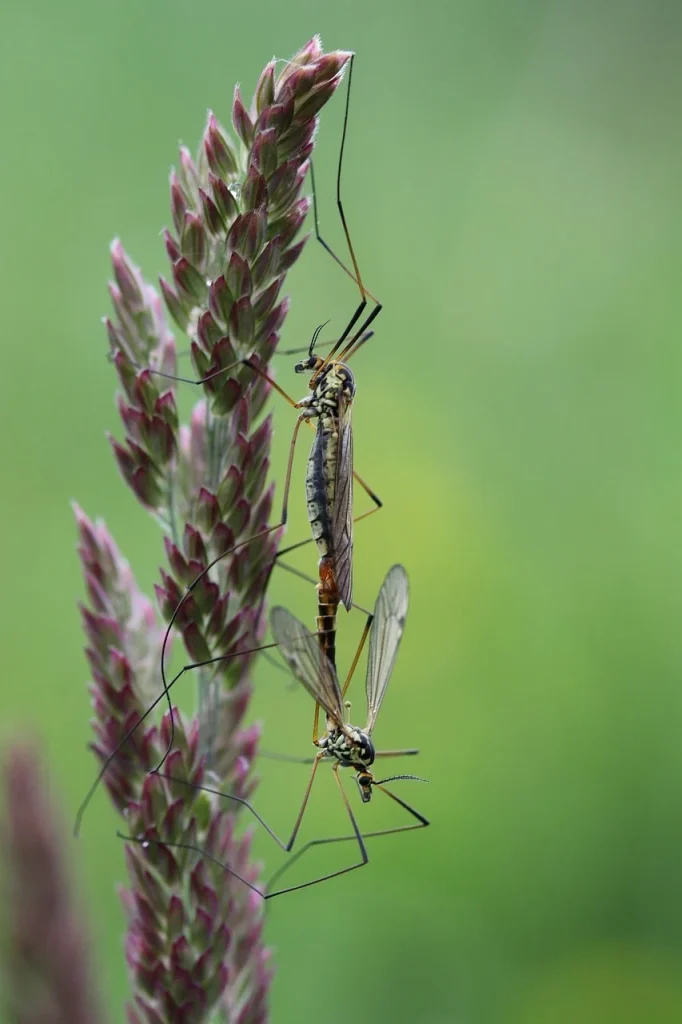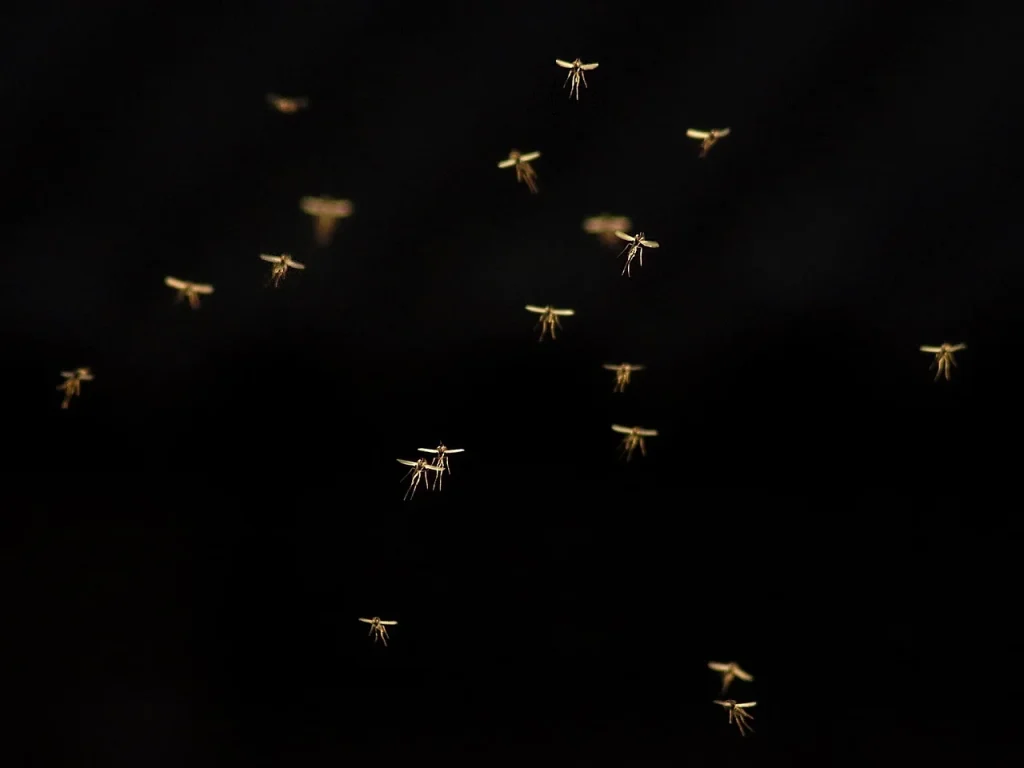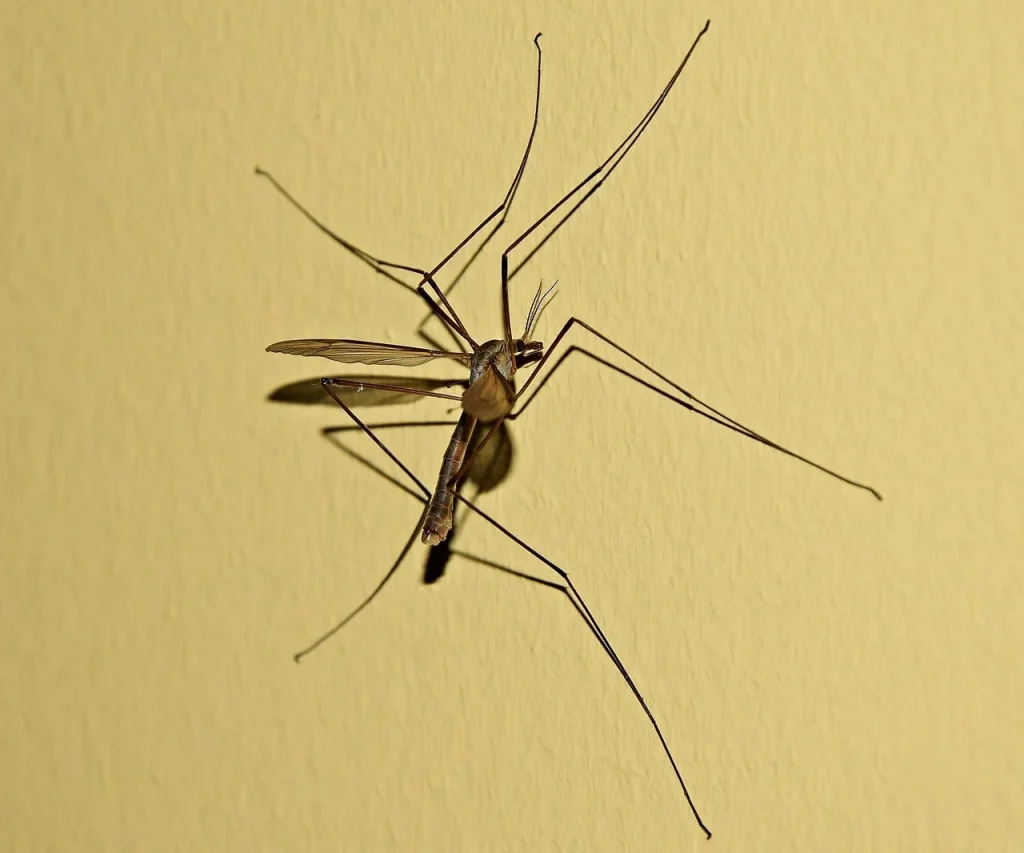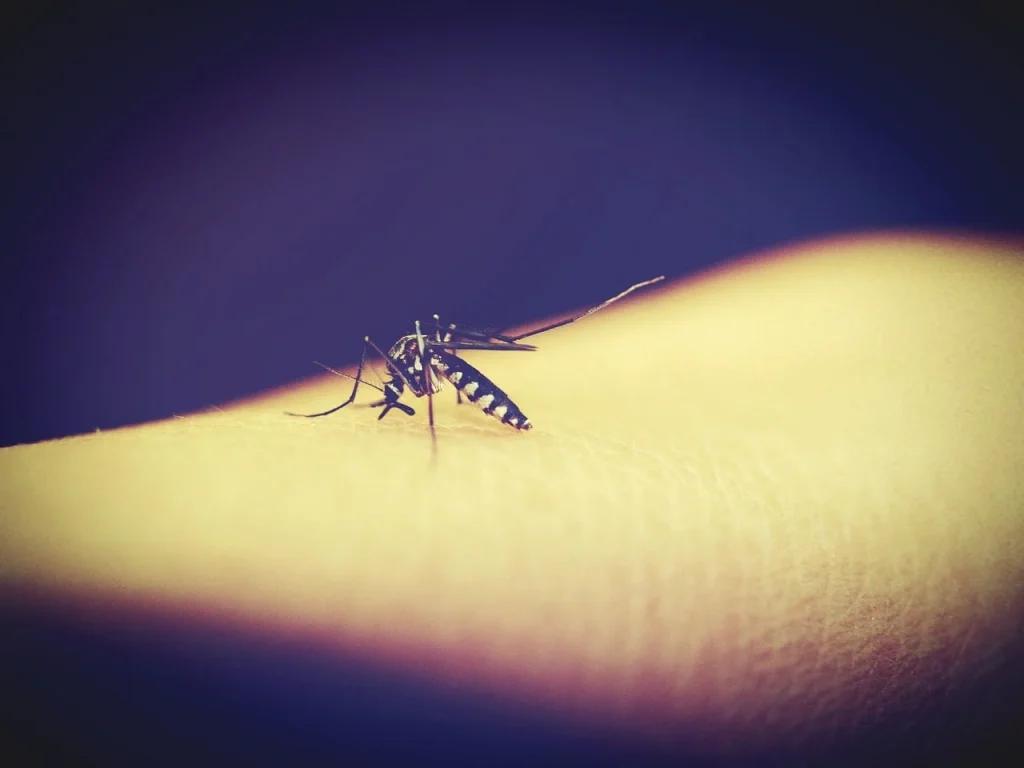Mosquitoes might be tiny, but they have a huge impact on our lives. Have you ever asked yourself why mosquitoes bite or how they find their targets? These questions and more will be answered in our exploration of 50 facts about mosquitoes.
You’ll discover details about their biology, behavior, and the significant role they play in transmitting diseases.
Mosquitoes Facts
We are starting our journey into the world of mosquitoes with the facts. Read carefully because there is a quiz at the end of the page. Can you ace it?
- Female mosquitoes are the only ones that bite humans for blood.
- Saliva injected during biting acts as an anticoagulant to keep the blood flowing.
- Over 3,500 species exist, each with unique behaviors and habitats.
- Carbon dioxide from our breath attracts them from up to 50 meters away.
- Water is crucial for their life cycle, as larvae and pupae develop there.
- Only a small percentage of species transmit diseases to humans.
- Flapping wings at 500 beats per second produces their characteristic buzzing sound.
- During blood feeding, they can ingest up to three times their body weight.
- Survival skills include detecting body heat to locate blood vessels.
- Blood type O is more attractive to them than other blood types.
- Some species are attracted to dark colors, making black clothing riskier.
- Body odor variations can make certain individuals more attractive.
- Global warming is expanding their habitable range, increasing disease risks.

- Male mosquitoes primarily feed on nectar and plant juices.
- Fossils indicate their existence dates back 100 million years.
- Malaria parasites and other pathogens can be transmitted during feeding.
- Female mosquitoes can lay up to 300 eggs at once.
- Eggs can survive for years in dry conditions, hatching when exposed to water.
- Some species hibernate in colder climates to survive winter.
- Temperature affects their breeding, with warmer climates increasing activity.
- Genetic modifications are being researched to reduce disease transmission.
- Flight range can extend up to 10 miles in search of a blood meal.
- Repellents like DEET confuse their sense of smell, making humans harder to find.
- Larvae are often called “wigglers” because of their swimming movements.
- Pupae, known as “tumblers,” are the stage before becoming adults.
- Insecticides have led to resistance in some populations, complicating control efforts.
- Breeding grounds include any standing water, from puddles to large wetlands.
- Symbiotic bacteria in their guts help digest blood meals.

- Artificial lights can attract or repel different species, affecting their behavior.
- Female mosquitoes use specialized mouthparts to pierce skin and access blood vessels.
- Some species prefer feeding on birds, amphibians, or reptiles over humans.
- Rapid reproduction can lead to large population booms under favorable conditions.
- Climate change influences migration patterns, introducing new species to regions.
- Blood feeding provides the necessary proteins for egg development.
- Resistance to diseases like malaria varies among human populations.
- Swarming behavior in males occurs during mating displays.
- Some cultures use traditional methods like smoke to deter them.
- Bioluminescent proteins in larvae help them thrive in dark water environments.

- Gene editing is being explored to create sterile males, reducing populations.
- Ultrasonic devices claim to repel them but lack scientific support.
- Blood feeding preferences can change based on environmental factors.
- Temperature regulation in humans can influence attractiveness to them.
- Water treatments with larvicides are effective in controlling populations.
- Travel and globalization increase the spread of mosquito-borne diseases.
- Wolbachia bacteria are used in some control programs to reduce disease transmission.
- Research on mosquito behavior is crucial for developing new control methods.
- Life span of females is typically longer than that of males.
- Ecological impact includes serving as food for various predators like fish and birds.
- Bioengineered mosquitoes are being developed to combat diseases like Zika and dengue.
- Global health organizations work tirelessly to manage mosquito-borne disease outbreaks.
Mosquitoes Myths

Now that we’ve covered the facts about mosquitoes, let’s continue into the next section where we debunk some of the most common myths.
- Mosquitoes Prefer Sweet Blood
They aren’t attracted to “sweet” blood. Instead, they’re drawn to carbon dioxide, body heat, and specific body odors. Blood type can influence attractiveness, with Type O blood generally drawing more mosquitoes than others. - All Mosquitoes Bite Humans
Only female mosquitoes bite humans because they need blood to develop their eggs. Male mosquitoes, on the other hand, feed on nectar and do not bite. - Bigger Mosquitoes Are More Dangerous
The size of a mosquito doesn’t determine its danger. It’s the species that matters. Some of the smallest mosquitoes, like those in the genus Aedes, are more likely to spread diseases like Zika and dengue. - Mosquitoes Are Only Active at Dusk and Dawn
While many species are most active during twilight hours, others, especially those that spread diseases like dengue, prefer to bite during the day. - Citronella Candles Are the Best Mosquito Repellents
Citronella candles are not very effective at repelling mosquitoes. Products containing DEET, picaridin, or oil of lemon eucalyptus are much more effective in keeping mosquitoes at bay.
Mosquitoes Quotes

Below you will find a list of some quotes about mosquitoes. Feel free to share more in the comments and I will add them to the list.
Mosquitoes remind us that we are not as high up on the food chain as we think.
Tom Wilson
Tom Wilson’s quote serves as a humbling reminder of our vulnerability to even the tiniest of predators.
I don’t care how much you love someone – you can’t love someone who leaves their window open when there are mosquitoes outside.
Kamand Kojouri
Kamand Kojouri humorously highlights the annoyance and conflict mosquitoes can bring into relationships.
Mosquitoes are the greatest mass murderers on planet Earth.
Katherine Applegate
Katherine Applegate points out the deadly impact of mosquitoes, responsible for spreading fatal diseases.
Mosquitoes, like all annoying things, eventually end up in the graveyard.
Steven Magee
Steven Magee’s quote reflects the inevitable demise of all nuisances, including mosquitoes.
The mosquito is the state bird of New Jersey.
Andy Warhol
Andy Warhol’s tongue-in-cheek statement underscores the prevalence of mosquitoes in certain regions.
Mosquitoes FAQ

Now that you’ve absorbed those quotes about mosquitoes, it’s time for the FAQ section. Read carefully, as this is your last stop before the quiz!
- Why do mosquitoes bite humans?
They bite humans to obtain blood, which provides essential proteins needed for egg production. Only female mosquitoes bite. - How can I prevent mosquito bites?
Use insect repellent, wear long sleeves and pants, and avoid being outside during peak mosquito activity (dawn and dusk). Installing screens on windows and using mosquito nets can also help. - Why do mosquito bites itch?
When a mosquito bites, it injects saliva that contains anticoagulants. Our immune system reacts to these foreign substances, causing itching and swelling. - Can mosquitoes transmit diseases?
Yes, they can transmit diseases like malaria, dengue fever, Zika virus, and West Nile virus. It’s important to take preventive measures, especially in areas where these diseases are prevalent. - What attracts mosquitoes to certain people?
They are attracted to carbon dioxide, body odor, heat, and sweat. Genetics also play a role, making some people more attractive to mosquitoes than others.
Mosquitoes Trivia

Buzz on in and take our mosquito quiz! Fail to get a single answer right, and we’ll send a swarm to crash your next picnic.
Conclusion
In summary, while mosquitoes are an inevitable part of nature, we have the power to manage their impact. By staying informed about their behavior and implementing practical prevention strategies, we can protect ourselves and our loved ones.
Simple actions such as avoiding peak mosquito activity times and maintaining clean environments make a big difference. Together, we can keep these pesky insects from ruining our outdoor experiences. Till next time, stay curious and explore more. Cheers.
2 Sources Used For This Article

